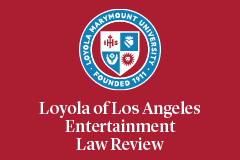Abstract
Bankruptcy law seeks to provide a “fresh start” for debtors and an equitable distribution of funds to creditors. Trademark law, on the other hand, aims to ensure proper source identification and protect the public from deception. These policies converge when a trademark owner or licensor has licensed use of the mark to others and hopes to reject this licensing agreement in bankruptcy. Prior to the Supreme Court’s decision in Mission Prod. Holdings v. Tempnology, LLC, there was a circuit split regarding the licensee’s rights upon the bankruptcy of and rejection by the licensor. Some circuits held that the licensee’s rights terminated upon rejection, while others held that the rights continued.
The Supreme Court ultimately resolved these conflicting positions and held that rejection of a trademark license operates as a breach under applicable state law, which allows the licensee’s rights to survive the bankruptcy. While this result seems fair for the licensee who may rely on use of the mark to keep its business afloat, there are certain bankruptcy and trademark issues that may arise such as increased difficulty in reorganization for the licensor, as well as the possibility of naked licensing and abandonment. This Comment explores these potential legal implications, considers legislative amendment, and suggests that practitioners draft contracts accordingly to help manage possible risks created by the Mission decision.
Recommended Citation
Kayla N. Ghasemi,
Reorganizing in the Wake of Mission Prod. Holdings v. Tempnology: How to Address the Trademark and Bankruptcy Law Issues Created by the Supreme Court’s Recent Decision,
41 Loy. L.A. Ent. L. Rev. 39
(2021).
Available at: https://digitalcommons.lmu.edu/elr/vol41/iss1/2


